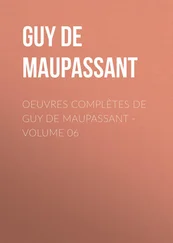Vera could not restrain a smile. “I never thought of Christ as a money-lender,” she said. “It was the money-lenders he whipped out of the temple, wasn’t it?”
“He wouldn’t have done it if they were doing good,” replied Stutz with a stubborn look.
“So you want to do some good, do you?” Vera teased.
Stutz, deaf to her frivolous tone, nodded his head soberly. “Yes.”
“And what if it gets you in trouble with my father?”
“Why would doing good get me in trouble with Alec?”
“It might seem to him like you were switching sides.”
“There are no such things as sides for me, Mrs. Miller.”
“Come, come, Mr. Stutz, you’re not that innocent.”
“You don’t hurt a man by helping his daughter.”
Vera gave him an appraising look. “The question is: Why do you want to do this, Mr. Stutz? For whose sake are you offering help? His or mine?”
“For everyone’s sake I would like to do good,” said Stutz.
“And that’s it?”
Stutz chose not to answer. The monotonous chop chop chop of the axe striking wood penetrated the kitchen. Mr. Stutz seized the opportunity it presented. “What’s that?” he asked.
Vera did not renounce her suspicions but she allowed them to relax. Stutz could be a deep one, perhaps too deep for her ever to see clear to the bottom of. “It’s Daniel splitting wood,” she said. “He’s been out there forty-five minutes already, but by the sound of it he doesn’t seem to be making much headway.”
“Oh, I thought maybe… you know… we were alone, that Daniel was out with friends.”
Vera said nothing, watched her fingers fiddle with the charred matchstick in the ashtray.
“It’s a chance to be independent,” said Mr. Stutz encouragingly.
“The reason he’s still out there chopping,” said Vera, “is that he doesn’t know how to go about it. Plenty of wasted effort when you don’t have the knack.”
“He must be getting cold. What if I send him in and finish up for him?” suggested Mr. Stutz. “I could split you a woodbox full in no time at all.”
“Yes, maybe he should come in. It wouldn’t do to have him freeze his face.”
Mr. Stutz got up from the table. “Think about it, Mrs. Miller,” he urged, stooping over and pulling on his overshoes.
“And what if I lost your money, Mr. Stutz?” she said playfully, attempting to make light of his proposal so it need not be faced.
Stutz straightened up and considered her question. His deliberation, his grave manner of answering, denied Vera a flippant escape. In his dumb, fumbling way he made it impossible for her to avoid taking him seriously.
“It’s only money,” he said, “and I’ve got nobody to hurt by losing it. I’ve nobody to leave it to. No wife or anything.”
“But there’s always family. You must have some family.”
“No family,” he said, shaking his head.
“None?”
“None.”
So much for that. Vera struck a match and lit one of Stutz’s Millbanks while she collected and marshalled her thoughts. She couldn’t help being both excited and afraid. The old christer, the old do-gooder meant every word he said. It could be read plainly in his smooth, innocent face. The money was hers for the asking. The only difficulty was that Vera was not much good at asking; she lacked the talent. And the way he had presented it to her, implying that she had no choice but to take his money because it was the only way out for someone in her position, wouldn’t make asking any easier. What Stutz had suggested to her might be God’s unvarnished truth, but Vera didn’t welcome having it brought to her attention. Besides, she knew there was always a choice, even if it was only choosing not to choose. She still had that left to her.
Vera bit at a speck of tobacco clinging to her bottom lip. Stutz stood patiently by the door, waiting. The last word she could recall him saying was “None.” A barren, lonely word. Poor devil, Vera thought. Poor kind devil.
“Do you need kindling?” he asked, resting his hand on the doorknob.
“Pardon?”
“Do you need kindling for the stove?”
“Do I need… yes. Please.”
He nodded and went out.
So what was she going to do? The truth was she didn’t know. Her mouth was dry with the desiring of it and dry with the fearing of it. Over the years she had let the lie of confidence carry her through most situations. She wasn’t sure she could make that work for her anymore. Too much strength had been used up. Worn down as she was, could she survive disappointment and failure if they came?
Jesus, Vera thought, I don’t need this now, a temptation at this late date. Or maybe she did. Her father had fallen into the accident of success, why couldn’t she? Why not? There had always been more to her than her father had ever guessed at, or that she had had the opportunity to show.
She got to her feet and circled the kitchen. Twice around the room and she resumed her seat, laid down her hands side by side on the tabletop as if they were gloves. Then she took a deep breath and pressed down with her palms as hard as she could. Time passed. Her fingers went white.
Vera had made her decision.

When he was finally persuaded they were gone for good, Alec was torn by loneliness for his grandson and daughter. Loneliness led to a discovery. It was this: alone in his empty house he heard a voice. So loud, emphatic, and inescapable a voice that in the beginning it frightened him, even though most of what it announced was commonplace enough. Time for a cup of tea , it said. Or, Looks like snow . Of course, it was not so troubling after he recognized the voice as somehow his own, that it did not come from outside him. This did not happen at once. For a long time he was undecided. It sounded and did not sound like him. His disbelief was of the order of a man hearing, for the first time, a recording of himself speaking. Could that awful voice really belong to him?
To start with, he wondered if he might not simply be hearing himself talking to himself. He could have fallen into the habit, he supposed. It wasn’t so. Even with his lips firmly pressed together he could still hear the voice. Besides, what he was listening to was not the ordinary, familiar voice which had been his all his life – this voice was different. Not only did it fall strangely on his ears; it said strange, surprising things without warning. One day, out of the blue, it said: Did I have a hand in it .
Is this the sort of thing which Earl had complained of?
The night of the fire, Alec and Mr. Stutz rushed Earl back to town, leaving the hired man Dover to keep an eye on the progress of the destruction. From the first, it had been obvious that there was nothing they could do to save the crop. It was an outright loss. Fortunately, the burning field was bordered on all sides by summerfallow, either Alec’s or a neighbour’s, so the men were confident that the bare, tilled earth would contain the flames on Alec’s property and prevent them spreading. Nevertheless, when they reached Connaught Mr. Stutz was to call out the town’s fire brigade, chiefly so that the neighbours couldn’t accuse them of not having done all that was humanly possible if the fire carried, although they all knew that a single pump truck would be next to useless in such a situation. As Dover had said, “If that happens we may as well all sling out our dinks and piss – for all the good it’ll do.”
That night, however, Alec was less concerned with the fire than he was with Earl. On the way to Connaught he bombarded him with questions. “Are you hurt?” “What the hell happened back there?” His son made no response, merely sat pale and silent, watching the beams of the headlights bouncing on the rough road.
Читать дальше













